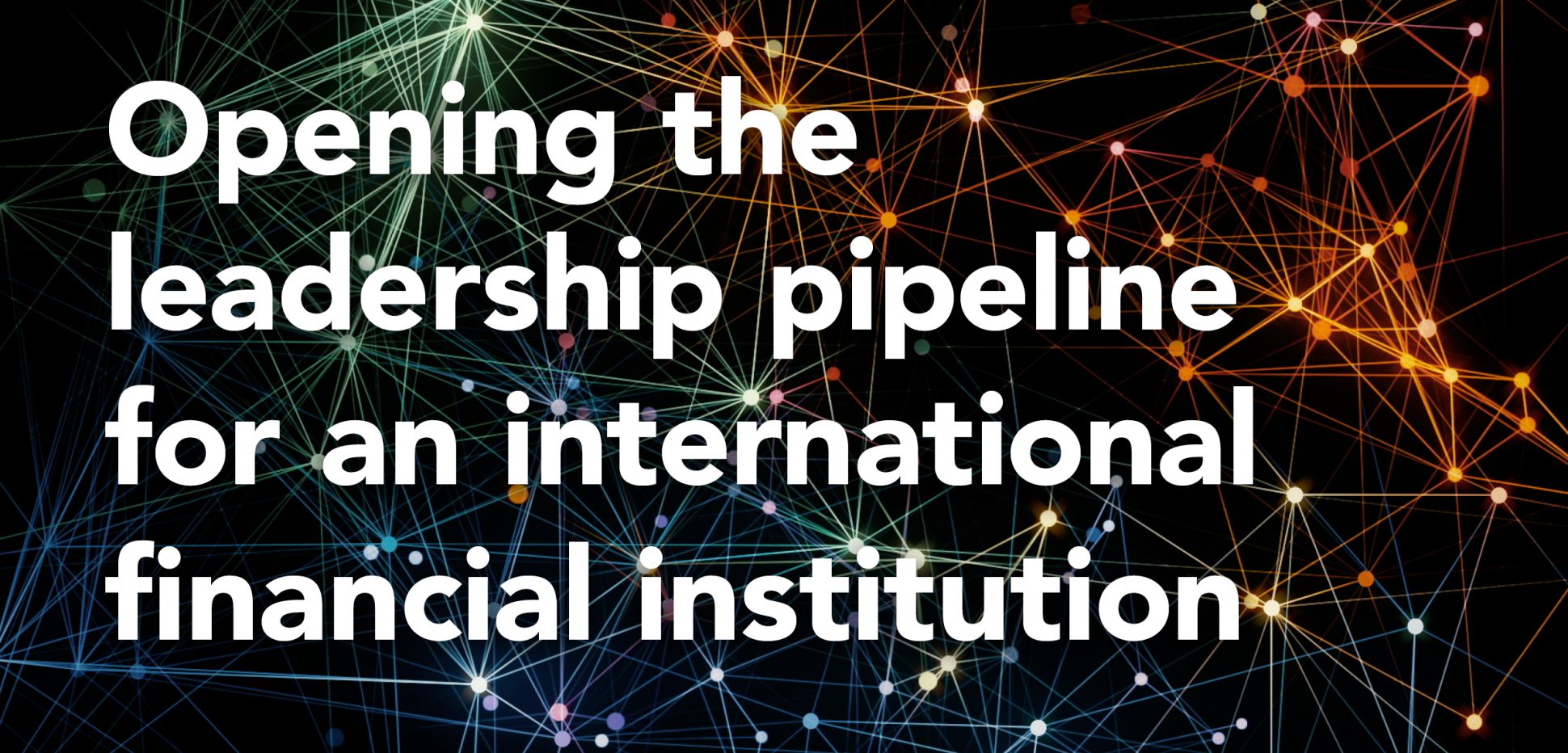Emerging Leader Development

Over 15 years ago, an International Financial Institution commissioned the design and delivery of a Leadership Programme with Sheppard Moscow, that continues to this day. Why has this programme lasted so long? There are a number of different reasons, from the focus on individual and organisation transformation to the ongoing commitment of Directors and VPs. The network of alumni also makes a huge difference, acting as agents of change and advocates of the programme.
The programme has three clear objectives:
- To transform the individual participants’ ability to lead and bring about organisational change, regardless of the role they occupy and their position in the hierarchy;
- To enable the organisation’s strategy of client focus and growth; and
- To build the future leadership pipeline of the organisation.
Many programme participants have gone on to become senior leaders in the Corporation, but the programme deliberately defines ‘leadership pipeline’ in the widest sense. The focus has always been about how learner leaders carry out their roles wherever they sit in the organisation, to recognize their collective power as a community of leaders to impact the organisation in a meaningful way. The organisation set them the brief to challenge, to take a strategic, forward-looking, whole organisation view; to act as integrators, to work through others, to show leadership and influence without authority or positional power. Taking the right decisions for the organisation and its mission rather than pursuing the interests of their functional or departmental role became a strategic imperative for this group of leaders. And, significantly, one of the key mechanisms for achieving this was to enable participants to put themselves in the shoes of their clients rather than operating from a ‘job role’ bubble.
One of the strengths of the programme is that it is designed to bring about both individual and organisational transformation. This is achieved through the committed and active involvement of Directors and VPs as sponsors in each cohort, the engagement of the participants’ managers in elements of the program, the delivery of one module away from HQ and regional offices – where the organisation’s impact is truly felt; in the involvement of clients in the shared learning experience as well as the establishment of a joint organisation and Sheppard Moscow faculty.
The integrated programme design has a number of core components:
- A rigorous nomination selection process to identify the appropriate candidates.
- A launch event to build the cohort’s commitment and sense of community.
- Facilitated three-way meetings between the participant, their manager and a member of the Sheppard Moscow faculty to agree on the business context for their development, identify the specific learning objectives and agree how the manager will coach the participant during their participation of the program.
- 360° degree diagnosis of the participant’s current leadership behaviours.
- Facilitated cohort dialogue with a Board Member to establish the business and client context.
- Two residential (now pivoted to virtual and hopefully soon to be hybrid!) 5-day experiential learning modules, focused on influencing skills, managing one’s own and others’ emotions, managing groups, better leveraging self and others, bringing about change, and communicating for engagement. The second of these modules is based in the field and involves local staff, client visits and engagement with the national political and social systems. There is a five-month gap between modules to enable participants to process their learning and put it into practice ‘on the job’.
- Focus on interaction with innovative, ground-breaking projects in high priority areas that reflect the current strategic priorities for the organisation to catalyse innovation and creativity amongst participants.
- Action-learning sub-groups that meet between modules to maintain learning momentum and provide ongoing development support for one another.
- Monthly “dialogue with leaders” events organised by the participants.
- Leadership initiatives were undertaken by the participants as part of their programme commitment to bring about organisation change.
- A facilitated three-way meeting between the participant, their manager and a member of the Programme faculty to review the outcomes for the participant, obtain the manager’s feedback and ongoing commitment to coaching and learning.
Since its introduction, over 300 staff have taken part in this six-month programme. Cohorts have demonstrated, ‘live’ and ‘in the field’, what is really involved and needed for the organisation to have the relationships, mutual understanding, skills, alignment, and common purpose to deliver the organisation’s ambitious strategy across the globe. Participants have been learning how to connect, understand, influence and engage others, to execute on the organisation’s key objectives.
The alumni of this programme have built a thriving network; acting as a fulcrum for change. To this end, the alumni network has taken concrete action to help implement strategy and to facilitate cooperation across the organisation, irrespective of their organisational and hierarchical position. Alumni have gone on to act as active facilitators of dialogue, agents of change, challengers of organisational apathy, as peer coaches and instigators of new processes and spontaneous doer’s to deliver on the organisation's mission.
The programme has consistently received the highest ratings in all reviews and evaluations in terms of its quality and impact. Managers and Directors see it as a key tool in developing the effectiveness and potential of their people who have gone through the programme; and former participants report that it has been pivotal and seminal in their maturation as effective, influential leaders in the organisation.
The programme is ever-evolving, adapting to the strategic priorities of the organisation, supporting participants as they develop their decision making and judgement to reflect the organisation's current priorities, and adapting to the requirements of its dynamic and demanding environment.
